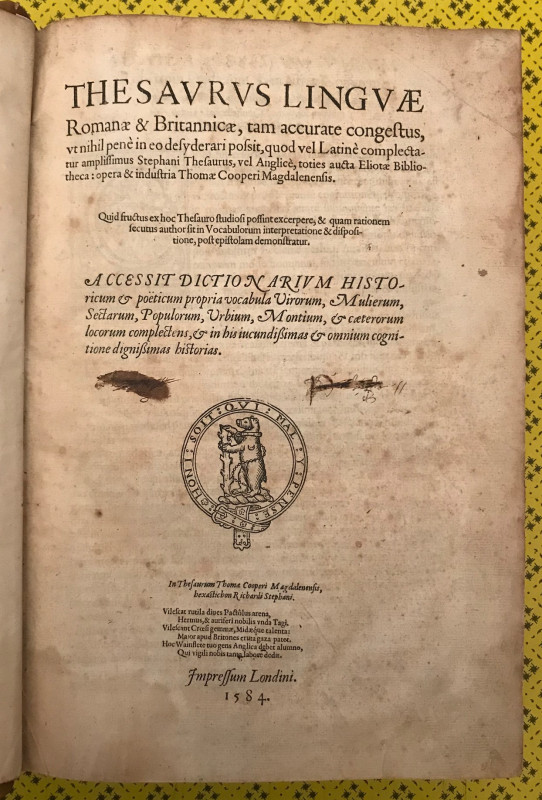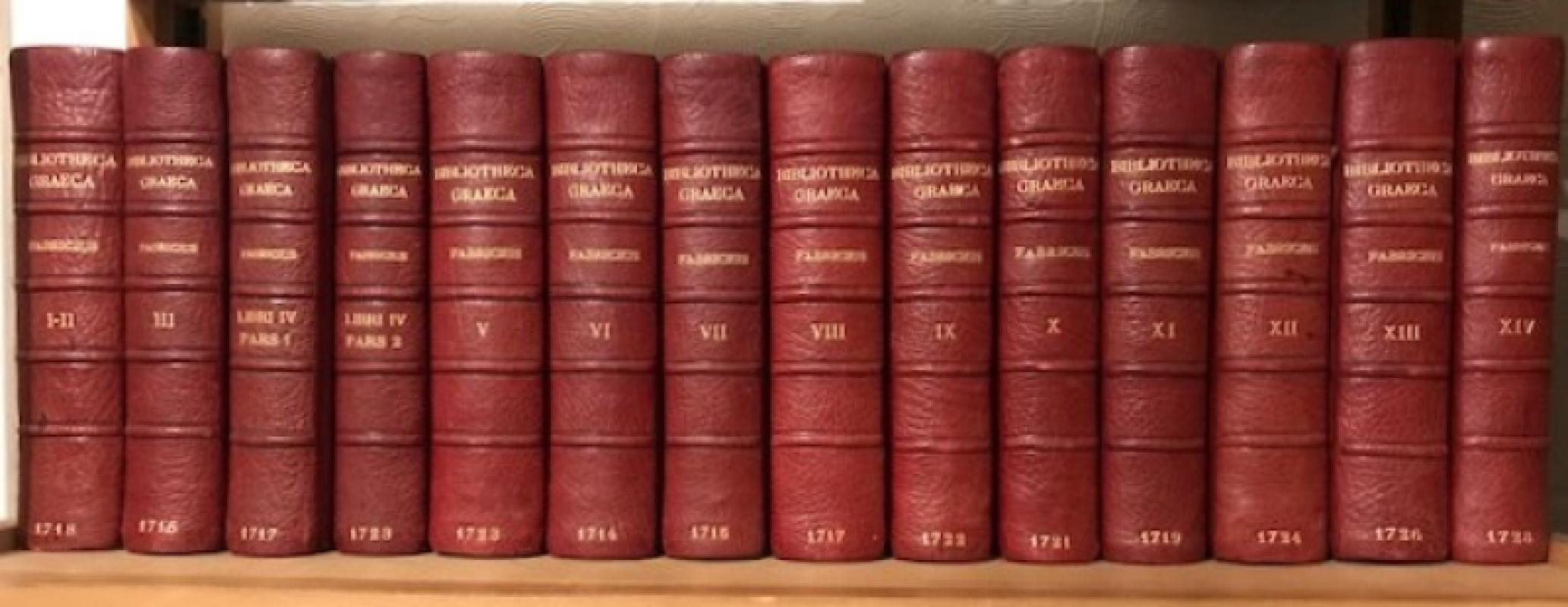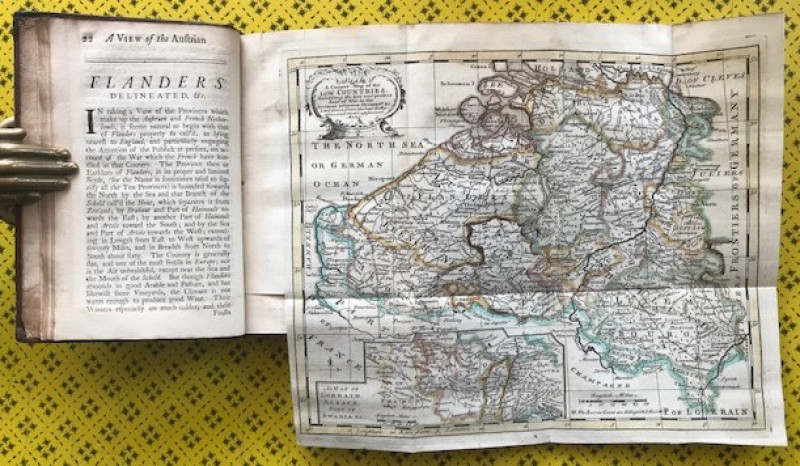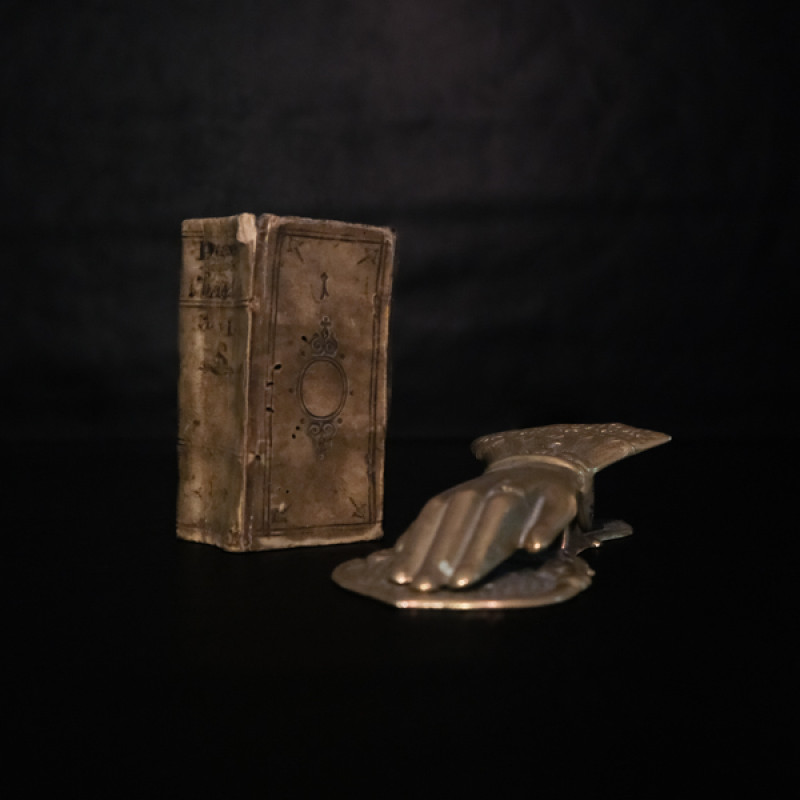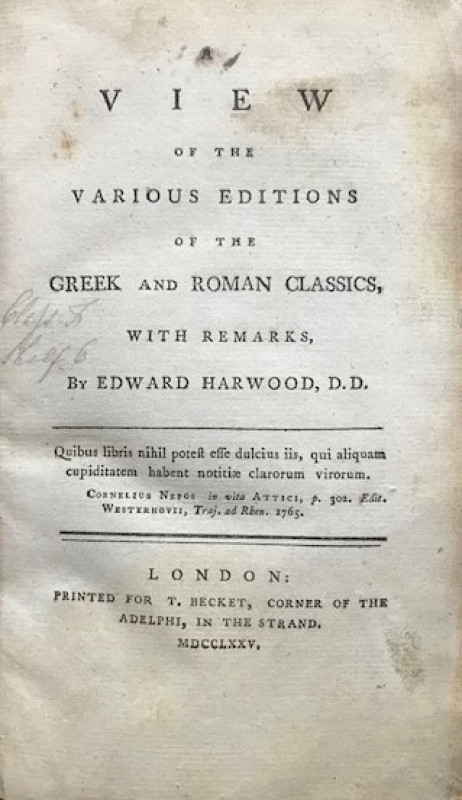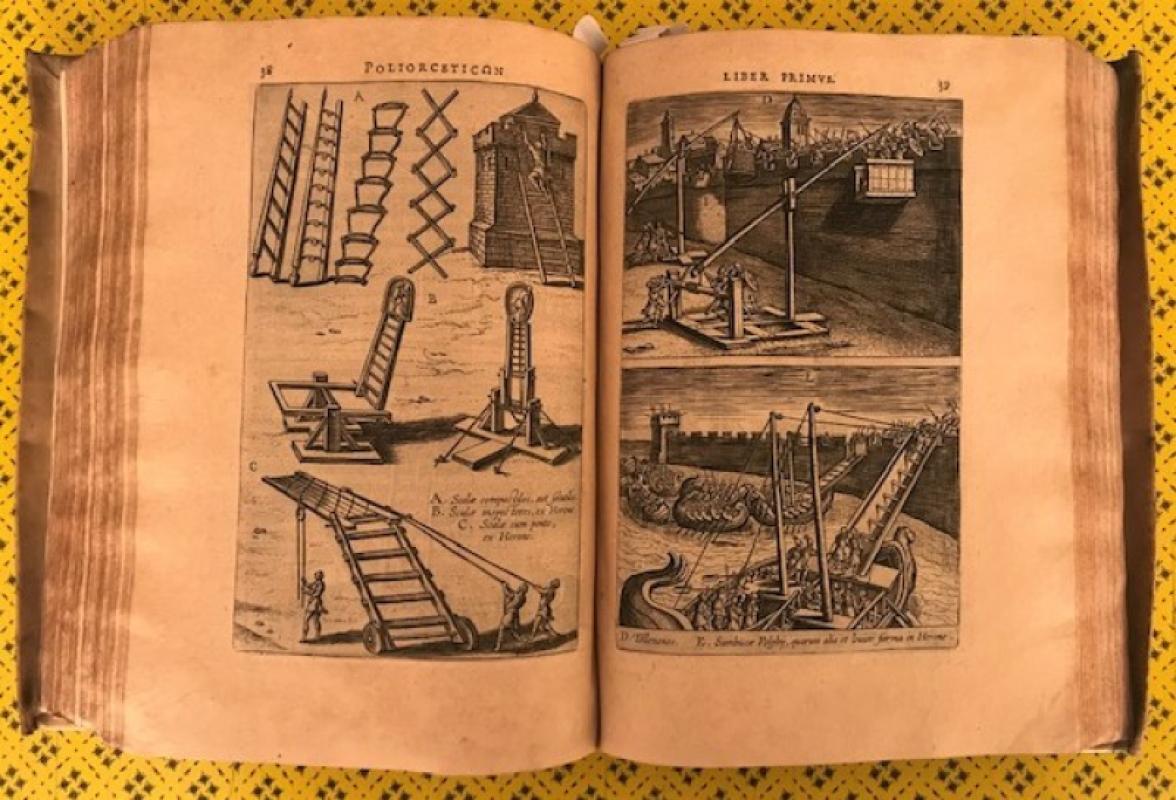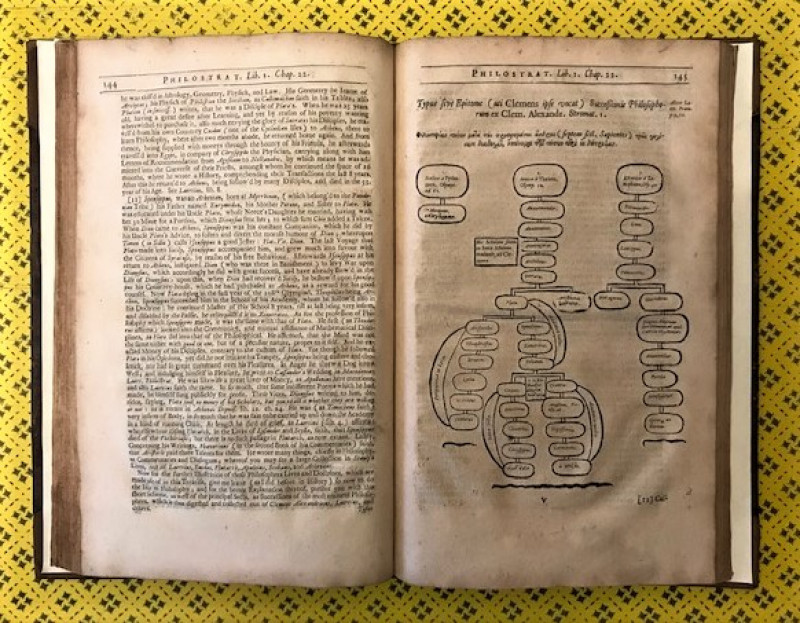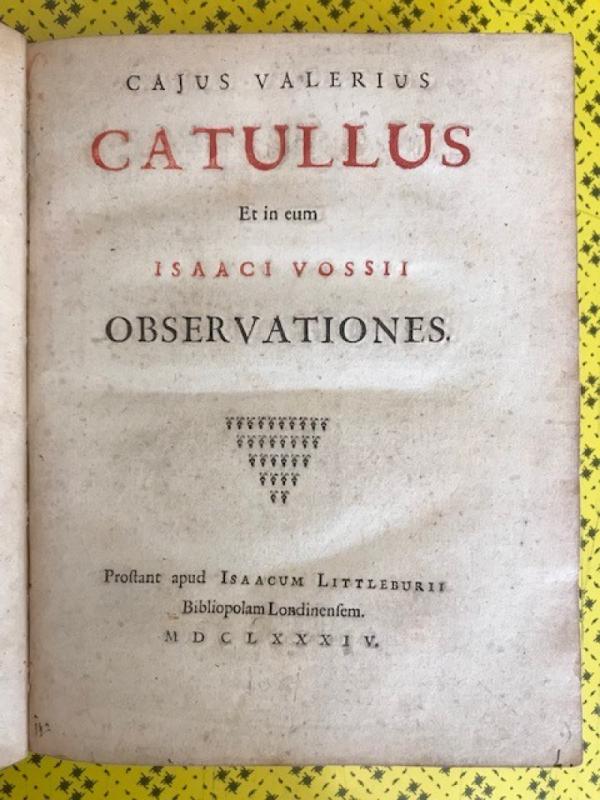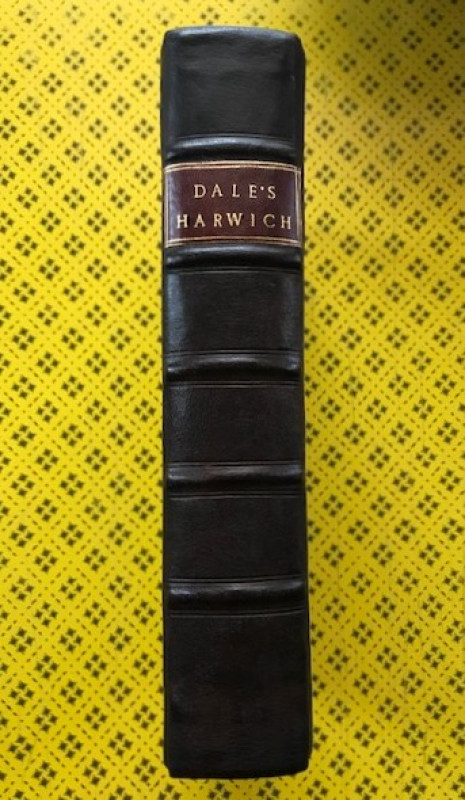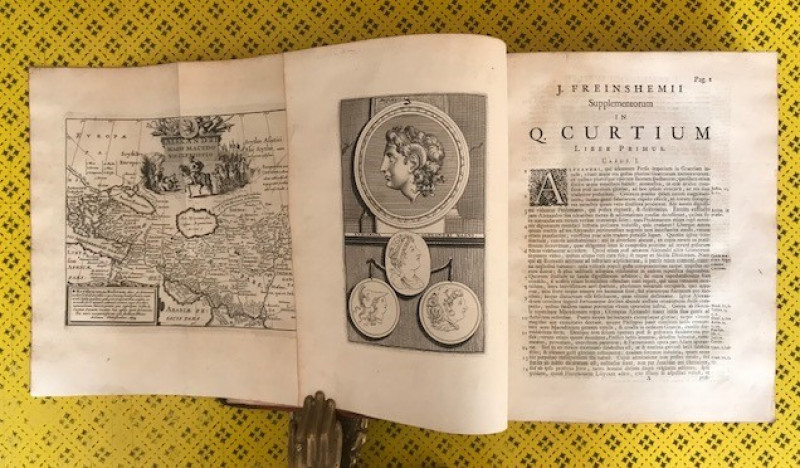Camden's Britannia, Newly Translated into English
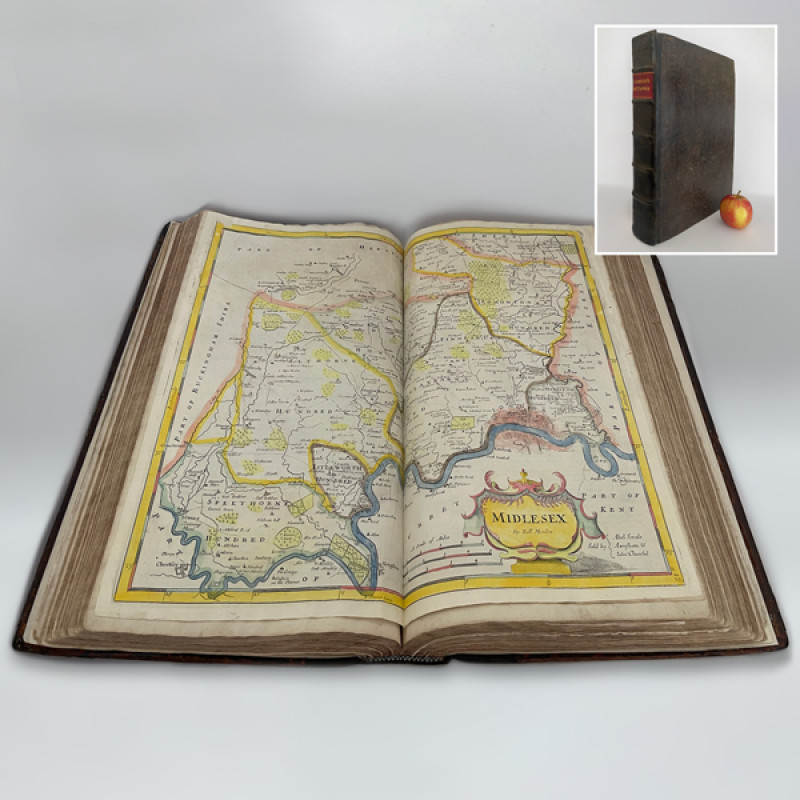
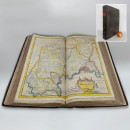
Book Description
Folio, [pp.xxxvi] pages, cxcvi cols., [pp.ii], 832 cols., pp.833-848, 849-876 cols., [pp.iii], 883-1056, 1055-1116 cols., [pp.xlvii] + 50 folding map plates + 8 numismatic plates. Errata at rear. Woodcut initials, illustrations in the text (inscriptions etc) at least one of which is full page, Some maps hand coloured (Yorkshire, Middlesex, Cumberland). Very few small MS notes. A little toning, the odd light damp stain near edges, some stains and dusty marks to maps, some maps reattached on stubs. Frontispiece and title-page repaired at gutter and with a few spots and smudgy marks, map of North Wales a bit crinkled, map of Kent lightly stained and with some old creases, paper flaws causing holes to 2D3 and 2M2 affecting a few words, U2 and U3 a bit short at tail margin, some smudgy printing to 1100-1112. Contemporary very dark brown boards with blind-tooled frames and borders, recently rebacked with red gilt title label, corners repaired, endbands and endpapers renewed. Surface of boards worn in a mottled pattern, a little rubbed but a very good, sound copy.
Dealer Notes
First edition (a second appeared in 1722) of Gibson’s translation of Camden’s momentous multidisciplinary attempt “to restore Britain to Antiquity, and Antiquity to Britain” (translated preface, quoted in ODNB). A translation made by Philemon Holland in collaboration with Camden had appeared in 1610 but was often inaccurate and less than faithful to the original material, and so is now considered inferior to this 1695 Gibson edition. “The Britannia had an enormous and lasting impact on multidisciplinary historical writing, and was also of the highest importance as a cultural icon affecting the national self-image. […] Recognizing the imperfection of the written record, particularly the scarcity of genuine British material, Camden looks to multiple kinds of evidence to push the record as far back as possible and to trace continuities through the different periods of British history. Histories of the different peoples who settled Britain supplement the chorographical description of the country. In the process of tracing Britain's cultural diversity, Camden was also a major force in discrediting the Brutus myth that had long dominated perceptions of British origins.” (Herendeen, ODNB).
ESTC R12882; Chubb, CXIII; Upcott I, pp.xxi-xxii.
ESTC R12882; Chubb, CXIII; Upcott I, pp.xxi-xxii.
Author
Camden, William: (Gibson, Edmund, trans.:)
Date
1695
Publisher
London: printed by F. Collins, for A. Swalle, at the Unicorn at the west-end of St. Paul's Churchyard; and A. & J. Churchil, at the Black Swan in Pater-noster-Row,
Friends of the PBFA
For £10 get free entry to our fairs, updates from the PBFA and more.
Please email info@pbfa.org for more information
